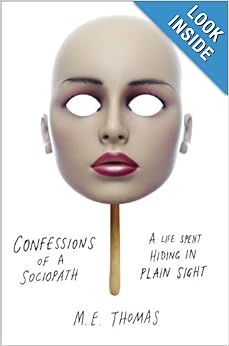After escaping from the long line of cars waiting to get into the Great Falls Park on a beautiful and sunny Saturday, we decided to try a new Szechuan restaurant in Maryland about which I heard a lot of good things a couple of months ago. Apparently it is a new addition in the fiercely competitive Chinese restaurant market in Rockville. My hairdresser highly recommended the taste, and S is a spicy food aficionado.
Tucked in an obscure little strip mall next to some car dealerships, the restaurant is fairly small and plain, but clean and pleasant. No tablecloth, but there is a bar.
We ordered two dishes: Fried eel and fish head tofu pot. "Are they spicy?" S asked eagerly. "Yes," the waiter assured us. By then I noticed at least half a dozen items on the plastic menu had been blacked out, which is rather unusual for a new restaurant and led me to wonder if the menu had been too ambitious to begin with.
The waiter came back with water and said, "Sorry we don't have the fish head. We can't seem to get the kind of fish with big heads."
It happens. I shrugged and ordered a different fish dish on the menu.
The eel came out in about 15 minutes. It was fine, nothing extraordinary but nothing to complain about. Just then two young men at the table next to ours started a discussion with the waiter.
"We've eaten everything else," said one. "It's been almost an hour. Where's the stir fried greens?"
The waiter said something I couldn't hear since he had his back to me.
"But we're done here. Can't you cancel the order?"
The waiter said something else and walked away. A pretty young waitress came over and said something to the two young men. Again I couldn't hear her words but could hear her girly, whiny voice with a hint of flirtation. After some song and dance, she seemed to persuade them to acquiesce. Within a few minutes she came out with a plate of stir-fried bok choy. The two men sighed and began to pick at it.
I looked around and saw that the place was only half full. Did the waiter neglect to write down the order? Did the chef forget to cook it? It wouldn't have taken more than 5 minutes to cook this.
We finished the eel. The fish was still unavailable. We waited. I got impatient and waved the pretty waitress over.
"We have another dish," I said.
"I know you have another dish," she said with the same whiny voice. "The kitchen's still working on it."
I almost said in reply, "That's the wrong response, honey. You should pretend to rush back into the kitchen and bark at the chef, and then rush back and tell me it's almost done." But I held my tongue and watched her saunter back to the bar area and chat with the boss.
The boss was middle-aged, square-faced Chinese man with a vague southeastern accent. Not a Szechuan accent. He stood behind the bar counter idly with an eye on the dining room, not doing anything in particular. A couple of other waiters were hanging around nearby with nothing particular to do.
We waited some more. I asked the waiter about the fish. He assured us it was coming. Another ten minutes later it finally came. As the waitress set it down on the table I asked, "Is the kitchen short handed?"
She shook her head, "No, but this dish is particularly time consuming."
I almost said in reply, "Yes, just like the stir-fried boy choy." But again I held my tongue and shrugged.
Much to my surprise the fish was excellent. The fish was covered with a brown sauce that contained fermented soybean paste, dry red pepper flakes, and minced meat and Shiitake mushroom. It was delicious. Though not as fiery as S would like, he was also highly satisfied with it and cleaned up the last bit.
I had a hushed discussion with him about the dilemma of such a restaurant. Is this a case of a very slow master chef? Or a lack of cooks in the kitchen to do all the menial jobs like chopping up scallions and garlic and ginger? Or poor management in every link of the chain that makes up running an efficient operation? It would be perfect, I said to S, if the chef got poached by another restaurant managed by someone who really knows what he's doing.
Good food, bad service, poor management. Ah what do you do? I don't know if we will come back, but S seems to like it well enough so we just might, if the restaurant survives.


























_poster_art.jpg/220px-Take_This_Waltz_(film)_poster_art.jpg)
